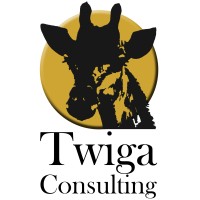HR and Labour Law: Adapting to New Regulations in South Africa
Labour law in South Africa is constantly evolving, and staying compliant is critical for every organization. Between changes in workplace equity rules, B-BBEE compliance, and regulations surrounding remote and contract work, 2024–2025 has brought important updates that impact HR operations across industries.
Organizations face real challenges: new legislation, tighter audits, and shifting workplace practices. Navigating these changes successfully requires foresight, agility, and a people-centered approach. At Twiga Consulting, we help businesses stay aligned with these developments, reducing risk while building stronger, more compliant workplaces.
Key Labour Law Developments in 2024–2025
- Employment Equity Amendment Act
New sectoral targets are being rolled out, requiring employers to demonstrate measurable transformation in line with government priorities. Companies must show progress not only in hiring practices but also in development and promotion of historically disadvantaged employees. Ensuring compliance involves tracking data accurately, implementing fair recruitment policies, and embedding transformation goals into everyday HR practices. - B-BBEE Compliance Updates
B-BBEE audits and verification processes have become more stringent, meaning businesses must pay closer attention to accurate reporting and strategic planning. Companies that fail to align with these requirements may face penalties or miss out on government contracts. Organizations are increasingly reviewing their procurement, supplier, and employment practices to maintain compliance while maximizing business opportunities. - Remote and Hybrid Work Regulations
With hybrid and remote work becoming a permanent feature for many organizations, employers must update contracts, policies, and health & safety frameworks to cover these new arrangements. This includes clarifying responsibilities for equipment, working hours, and workplace safety, as well as ensuring employees understand their rights and obligations. Clear policies help protect both the business and its workforce. - Fixed-Term and Contract Labour
Labour regulations emphasize fairness in pay, benefits, and tenure for temporary or outsourced employees. Companies must ensure that contract workers are treated equitably and that agreements are clear and compliant. Mismanagement of fixed-term staff can lead to disputes or legal challenges, so careful monitoring of contracts and adherence to statutory requirements is essential.
Practical Steps for HR Leaders
- Regular Policy Reviews
Keeping workplace policies up to date is one of the simplest but most effective ways to ensure compliance. Regular reviews help organizations identify gaps, implement necessary changes, and communicate expectations to employees. This proactive approach reduces the risk of violations and fosters a culture of accountability. - Invest in Training
Managers and HR teams should engage in ongoing compliance training to remain informed of changes in legislation and workplace regulations. Training programs help staff understand their legal obligations, navigate complex situations, and apply best practices consistently, which ultimately protects the organization from potential risks. - Workforce Data Management
Effective tracking of diversity, pay equity, and compliance metrics is critical for maintaining a fair and transparent workplace. Integrated HR and payroll systems can automate data collection and reporting, making it easier to monitor trends, measure progress, and respond quickly to compliance requirements. - Legal Advisory Partnerships
Collaborating with labour-law experts provides businesses with guidance on complex regulations, audit preparation, and dispute resolution. Advisory partnerships help organizations anticipate changes in legislation, implement best practices, and navigate legal challenges without disrupting operations. - Employee Communication
Transparent communication about rights, responsibilities, and organizational expectations is essential for maintaining trust. Clear messaging reduces misunderstandings, fosters a positive workplace culture, and ensures employees feel informed and empowered. Regular updates and open dialogue also strengthen compliance awareness across the organization.
Adapting to South Africa’s evolving labour landscape isn’t just about avoiding fines—it’s about building a workplace that’s fair, resilient, and forward-thinking. By updating policies proactively, leveraging expert guidance, and embedding compliance into daily operations, organizations can turn regulatory demands into a foundation for stronger workplaces.
At Twiga Consulting, we partner with clients to bridge HR operations and labour-law compliance, helping businesses protect themselves while empowering their people to thrive.
The insights from this article were gathered from the South African Department of Employment and Labour Updates (2024–2025), BusinessTech Labour Law Reports (2025), PwC South Africa HR Regulatory Outlook (2025), South African Labour Guide (2024), and Deloitte Legal Africa (2025).

